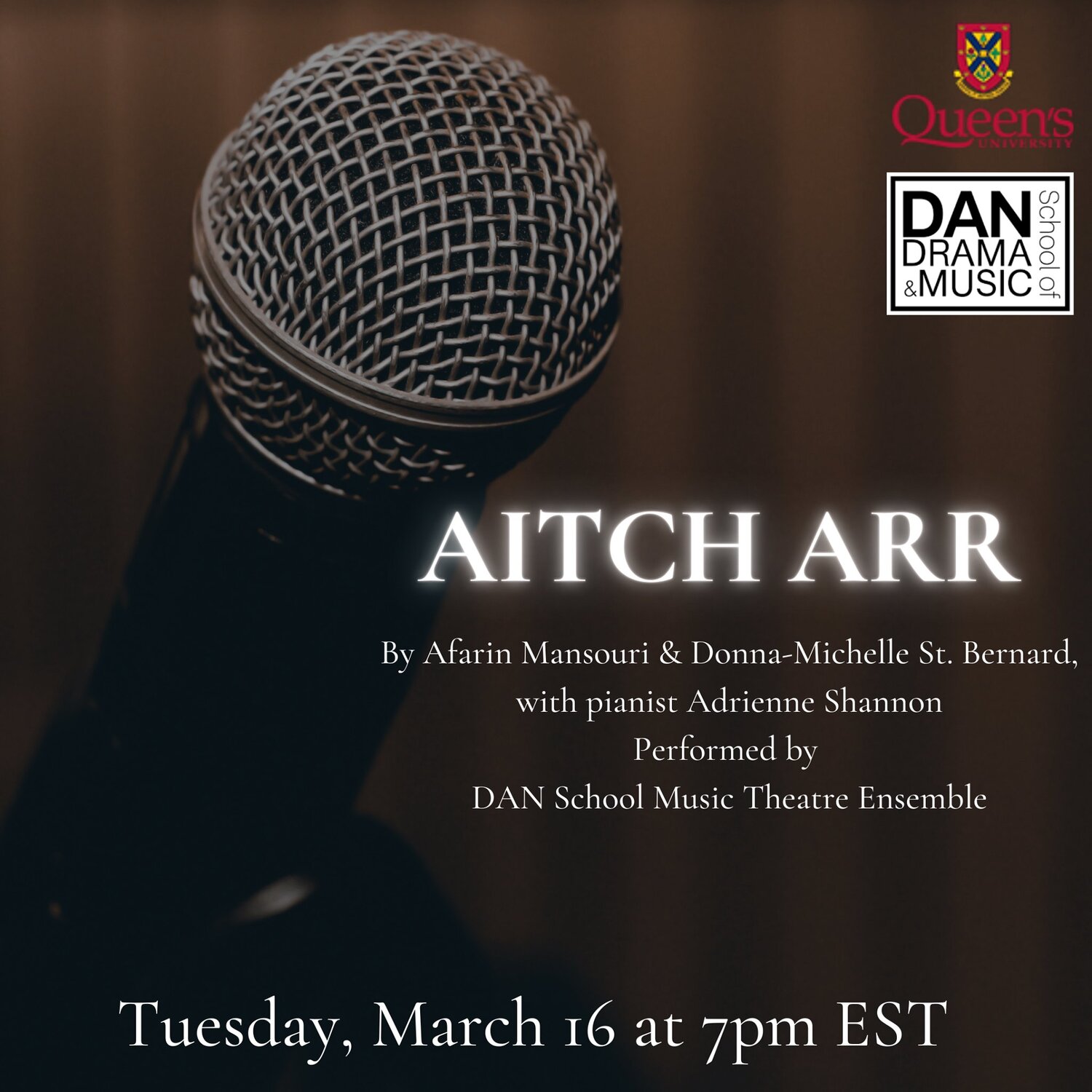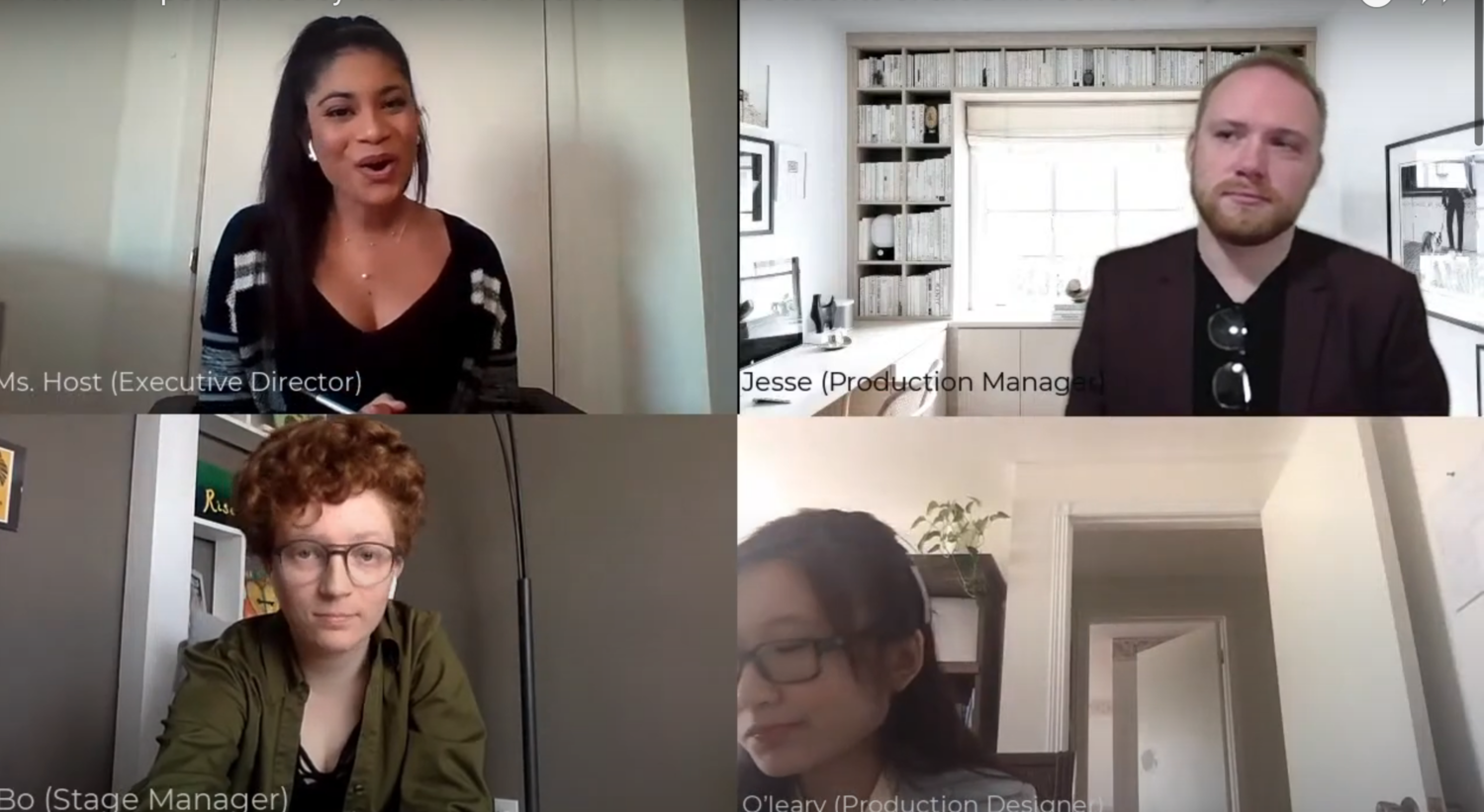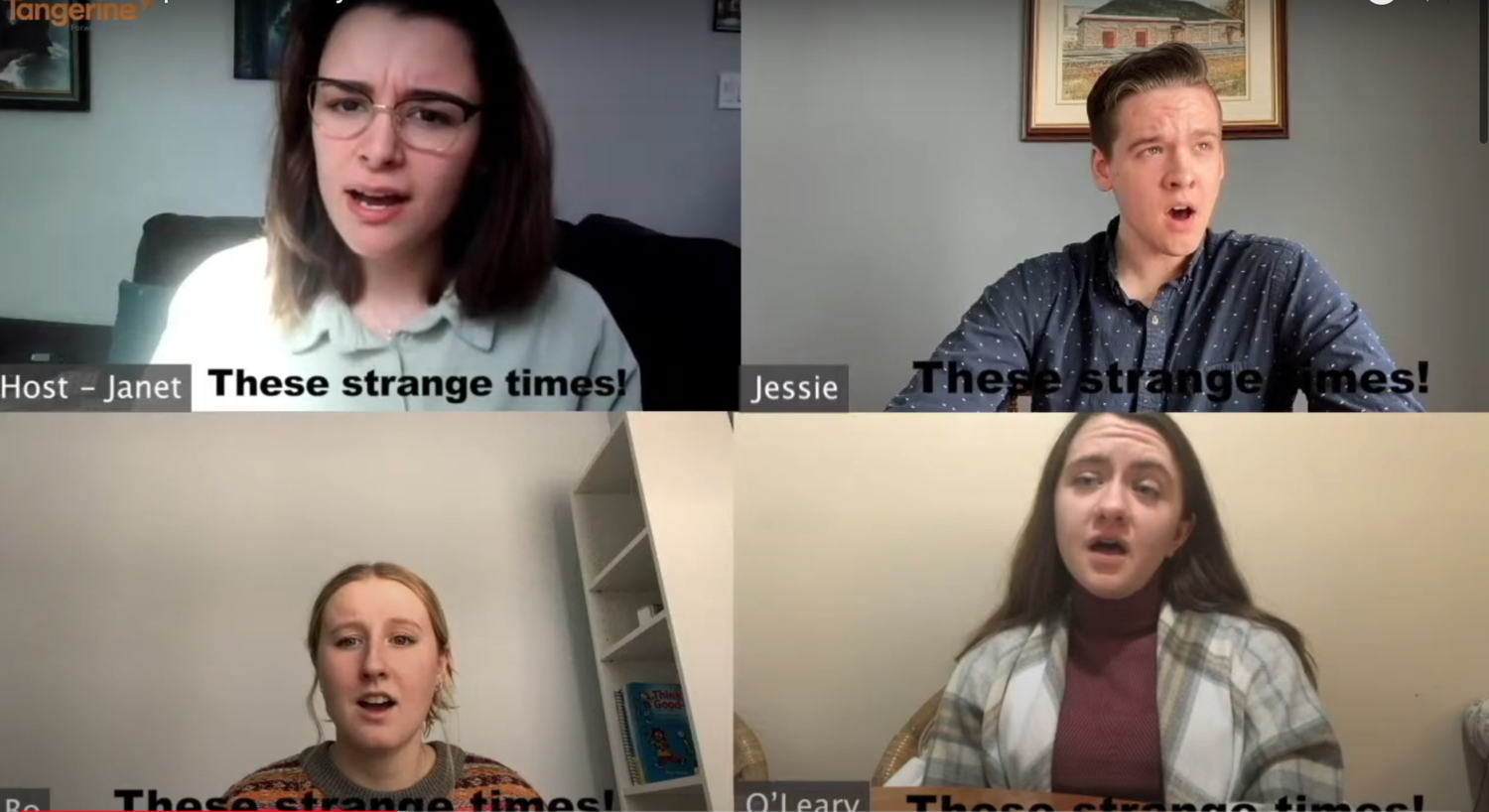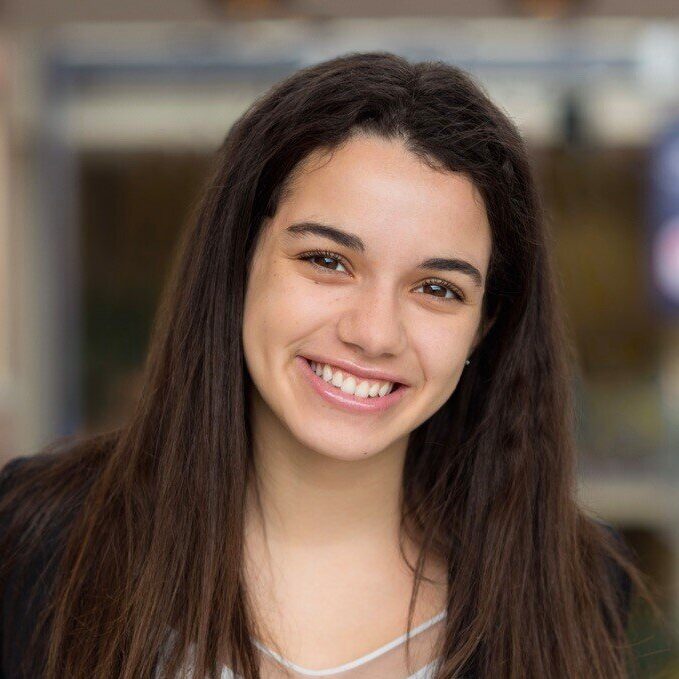Aitch Arr: Queen’s Students Present Innovative and Entertaining Opera Digitally

When we imagine opera, we think of majestic, luxurious theatres revolving around an artistic tradition that has spanned since the 16th Century. Rarely would we imagine opera to present itself as five-minute iterations presented digitally.
Yet, on March 16th, the Musical Theatre Ensemble at Queen’s University, a course facilitated through the Dan School of Drama and Music, digitally presented Aitch Arr, a mini-opera created by Afarin Mansouri and Donna-Michelle St. Bernard, with Adrienne Shannon providing piano tracks.
In essence, students in the Musical Theatre Ensemble were divided into six groups of four students each. Each group performed Aitch Arr, with the same music and lyrics, yet they were able to add unique characterizations, contexts, as well as manipulate settings. Furthermore, each group was assigned a color, and many groups added elements of their color through the performance, almost serving as easter eggs.
Rather than a traditional review, I was keen on talking to the Cast and Creatives of Aitch Arr on the process of creating opera virtually. I had the pleasure of speaking with composer Afarin Mansouri as well as cast members Mallory Brumm and Leah Coutinho.
Aitch Arr consists of four characters: The Host, Jessi, O’Leary, and Beau. Within the opera, characters are summoned to an HR meeting. Commenting on the actual subject matter of Aitch Arr, composer Afarin Mansouri noted that “When I shared it with people who are not from the music field, and they heard about the HR aspects of it, they were all really interested. And we found so many people, including my husband, who works in cooperation, shared with people who actually work in cooperation, since they actually go through this sort of meeting that they sometimes have to listen to these outdated recordings. So the subject was really interesting to work with.”
Curious about the pros and cons of devising opera virtually as well insight into the process in general, all three interviewees had distinct insights on the experience. I started by asking Mansouri as to whether composing virtually affected the contents of her work. She explains, “when I started to think about my themes and motifs and start writing my piece, it was not really different than any other operas.”
Mansouri did note some unique advantages to creating opera virtually, as she mentions that she “got the chance to have six weeks of workshops and working with students, and take them through the five pillars that build an opera…And the students were supposed to work mostly on dramatic gestures and find ideas about the set. And that was a challenge, because most of them are like, you know, in a room. And we’ve been trying to find ways that even in one room, you can come up with so many great ideas to attract the audience.”
She even believes that performances such as Aitch Arr, and other digital operas, challenge our fundamental understanding of what opera is. She remarks, “I’m getting to a point that I believe this is a new genre by itself, maybe we shouldn’t call opera, or maybe the meaning of opera is going through a huge change and the live performance aspect of it is being taken from it”.
In terms of advantages, accessibility was a common response among the interviewees. Mallory Brumm, who plays the Host in one of the iterations of Aitch Arr noted, “It makes theater so much more accessible to people. I think that’s something that is a constant struggle nowadays, we’re always reading about how theaters are inaccessible because of price and location. But I think the accessibility is just so much better now that it’s on Zoom.”

Coutinho, another Cast Member of Aitch Arr, actually felt that her creativity was enhanced in a digital environment, explaining, “Something that we were talking about was the element of liveness. And how do we substitute the liveness? I think with digital media in a digital opera, there’s so much more that you can do with it. There are effects that you can do, …you can play around with the audio, which is something that I figured out. There’s a lot of other elements that you are able to do via digital media than in person.”
Mansouri echoed this, commenting that “when something is broadcast online and is pre-recorded, you can have global access to a lot of families and friends from different parts of the world wide web to watch my work, which is not the case if this work, or any other work, was performed in a hall.”
Of course, despite the advantages of digital opera, there are some apparent weaknesses. Mansouri was amazed at the resilience of the student performers, given the circumstances. “Students in performing arts, they remain positive. It’s very hard, but we are creative beings. And we always can find new ways of showcasing and finding, you know, problem-solve the problems and the ways to overcome these obstacles… But meanwhile, this creativity, I believe, will help us all to come up with new ways of performing, like digital art, and establishing new genres that haven’t existed in the past. So it’s a very interesting time in history, I believe, like, going from one chapter to the next period of creativity.”
In terms of the weaknesses inherent in producing virtual opera, Coutinho felt that the only downside came down to technology issues suggesting that “with doing things digitally, there are always technology problems.… And when you’re in a group meeting, and you have like, an important idea that’s like, you know, bubbling, and then someone’s connection just drops out.”
In contrast, Brumm felt that the social aspect was more compromised. She described, “Making connections with the people that you’re working with is a lot tougher… because you can’t really have a natural conversation or really get to know someone when you’re in different locations, and just calling or chatting, even with video, it’s still difficult to really make those connections.” However, she did explain that “my group made a big priority of meeting often so we could really build that relationship and trust, which makes the project so much more fun because theatre is all about making connections and building relationships with people in such a close way.”

Perhaps simultaneously a weakness and a positive, Mansouri commented on the gender breakdown of the cast, and how they came up with a solution. She explains that “We had only two male students in terms of vocal abilities… We definitely wanted to have this work be genderless. I ended up creating four different scores for four different voice types, like all female types, or a mix of their voice types… And then for the audio background of the music, we also gave them two options: male or female.… I ended up having like, four scores plus two audio, which ultimately gave them eight options to choose from.”
Coutinho explained that in terms of actually creating Aitch Arr, “The breakdown of it was we would have a class every week. And in that class, we’d break down another element that we wanted to add. In our first semester, it was more about the script. Who is your character? And, Who are you? And, what do you want to be doing?” I was curious if Coutinho felt that any aspect of storytelling got lost in the digital process and she felt that “the hardest part was looking at myself, in a camera. This is a lot harder than I expected. I don’t like staring at myself. So just like getting over that. That challenge of acting and dealing with that.”
Aitch Arr once again proved how despite the limits of COVID-19 and barriers to the traditional physical presentation, the essence of opera can easily persist. As Brumm noted, “It was fun to see the challenges of being on Zoom and explore the possibilities of doing digital theatre. I think that digital theatre and doing this kind of production is going to be around for a really long time, especially because of the accessibility we just talked about.” These creatives proved how creativity, humor, and of course, gorgeous music and vocals can reveal themselves, no matter the medium or form of distribution. It was thrilling to see the Queen’s faculty take such an innovative approach to adjust curriculum throughout the pandemic while simultaneously providing students with an opportunity to perform, create and showcase their creativity and talent.
For those hoping to view Aitch Arr, the performance is available at https://www.youtube.com/watch?v=X9IGHiVNtcs&t=2962s
